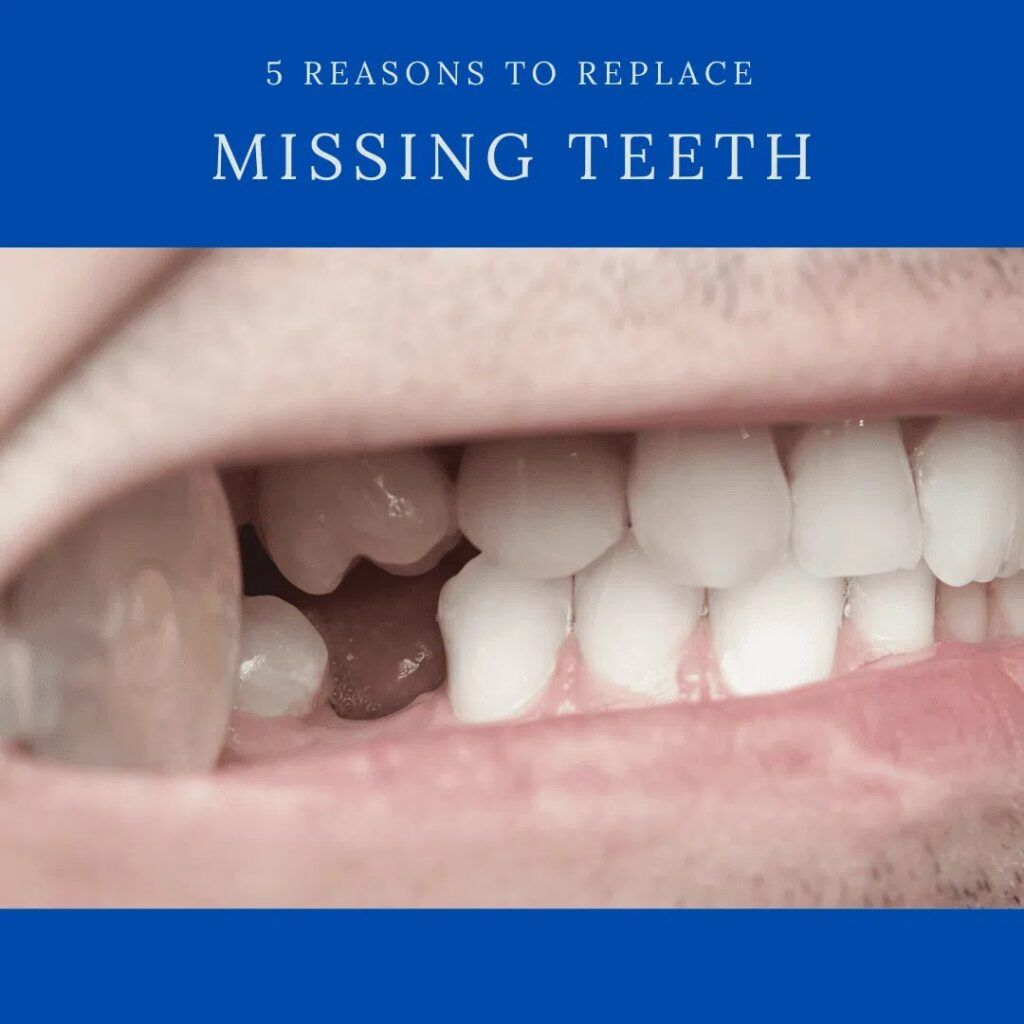Whether you’ve had a recent tooth extraction or you have lost a tooth due to damage or decay, you may be wondering what happens next. For some people, losing a tooth is no big deal and they may think nothing of it. However, deciding what to do after losing a tooth is something that you definitely want to put some thought into.
While you may think that having a missing tooth or two is no big deal, it is actually very important that you have any missing teeth promptly replaced by your dentist. This is because permanent missing teeth can cause a variety of problems that can negatively affect your oral health and lead to more complications in the future. In fact, here are five reasons why you should always replace missing teeth:
Maintain Function
Teeth are designed to bite and chew, and without them these functions become difficult, especially if multiple teeth are missing. Depending on the type of tooth that has gone missing, it can be more difficult to bite or chew foods that are sticky, hard, chewy, or crunchy. In some cases, missing teeth can also affect speech by causing the airflow out of your mouth to change.

Maintain an Even Bite
Even if only one tooth falls out or is extracted, the space left behind can affect the entire alignment of your bite. This is because the surrounding teeth will shift in position to fill the gap left by the missing tooth. Eventually this means that each tooth will no longer be in its correct position, which also means your bite will no longer meet up properly. An uneven bite can place uneven pressure on certain teeth resulting in premature wear or damage. Additionally, an uneven bite places additional strain on the jaw joint and increases the risk of developing temporomandibular joint disorder (TMD).
Prevent Overgrowth
Not only are the surrounding teeth affected by a missing tooth, but the opposing teeth are as well. Just like the surrounding teeth, opposing teeth will also shift to fill in a gap left by a missing tooth. However, instead of shifting sideways to fill a gap, opposing teeth will “overgrow” in order to fill the gap since they no longer have an opposing force.
Prevent Bone Loss
Six months after a tooth is lost, a natural process called bone resorption occurs. During this process, the body leeches bone from the jaw under a missing tooth and distributes it to other parts of the body. Eventually this causes the shape of the face to change. Although not all options for replacing missing teeth can prevent bone loss, dental implants can be used to preserve bone mass.
Restore Smile
The final reason to replace missing teeth is to restore the visual appearance of your smile. Unfortunately, there are several negative stereotypes about people with missing teeth and in today’s image-heavy world, having a complete smile matters. Replacing a missing tooth ensures that your smile will both function and look the best that it can.

